30.09.22 Spellings
We are learning to use an apostrophe in contracted words. The apostrophe marks the spot where the letter or letters have been removed. Use the following words to create your own sentences. Practise them ready for a test next Friday.
haven’t
couldn’t
don’t
they’ve
we’re
won’t
aren’t
you’re
Week 4
What a fantastic week we have had in Reception. On Monday we started our daily poetry work. We loved listening to the poem and learning actions to go along. Our poem this week was called ‘Chop Chop’ and all the children will bring it home with them on Friday to share with you. Check out the video below to see us in action.
We had our first visit to the school library this week. It was great fun looking at all of the books and choosing one to take home. Please can all library books be returned on Monday so we can return them and choose another exciting story.
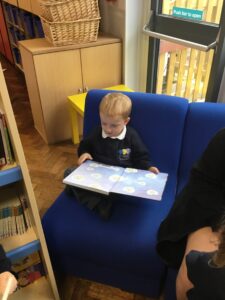
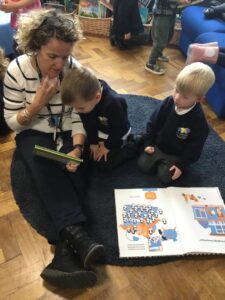
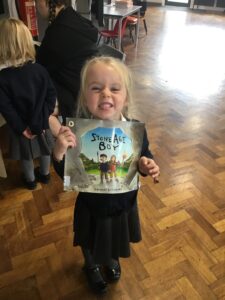
We have been learning more about where we live and our families. We used google maps and street view to look at different places in Wetherby and then shared information about our families and things we like to do together. Thank you to everyone who has brought a family photograph in, the children love sharing them with their friends. If you would like to send a photograph into school we would love to add it to our frame wall. Photographs can also be emailed to our reception email stjamesreception@spherefederation.org.
On Thursday 6 October we will be going on a local Autumn walk. Please can all children come to school in a warm coat and sensible shoes. If you would like to send wellies in to wear that would be great!
PE
In PE, we’ve been using our throwing and catching skills. We’ve also talked about the skills we need to defend a ball that is being thrown. Today, we put all of this together and introduced a game of ‘bench ball’. We used hoops to help us understand the rule that 5 people need to be on the bench for a point to be scored. Next week, we will be using the benches!
The children had lots of fun and demonstrated some fantastic throwing, catching and defending. Who knew they could jump so high to defend a ball? We also had a great umpire, making sure everyone followed the rules of the game. Well done, Year 2!


What’s in the Box?
This week, Year 5 and 6 are writing our first piece of short, descriptive narrative. This writing is based around our class novel (Secrets of a Sun King) where Lilian, our main character, finds a mysterious package on her grandpa’s front door step.
Our aim is to engage the reader by showing them Lilian’s thoughts and feelings, instead of just telling them everything that’s happening. We can do this by leaving little clues for the reader to pick up on – this allows the reader to paint a better picture of the story in their minds.
I am so impressed with the amount of perseverance all pupils have shown with this writing – some children even started all over again because they were determined to improve!
Here are some examples of our work so far – well done, everyone!
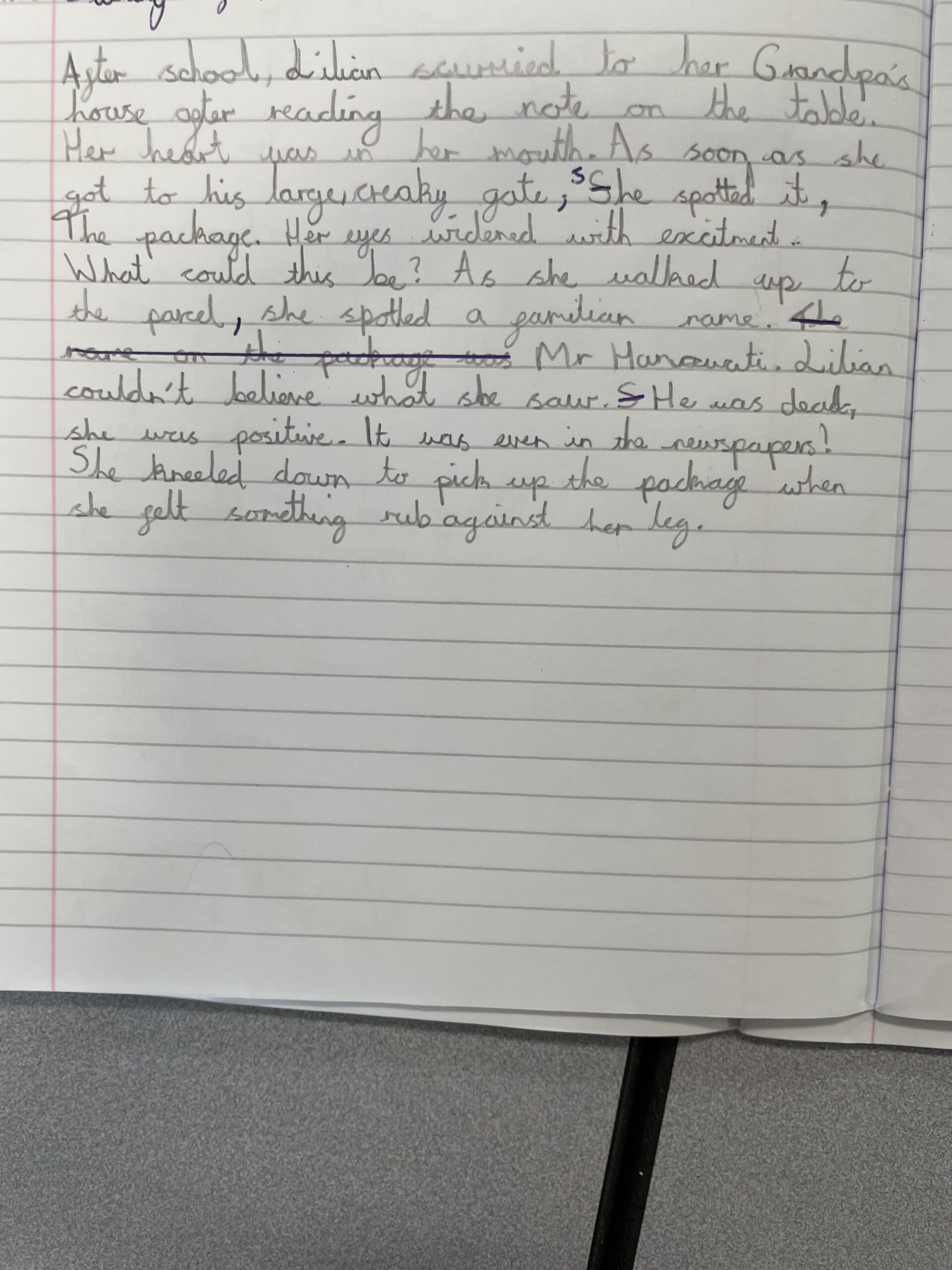
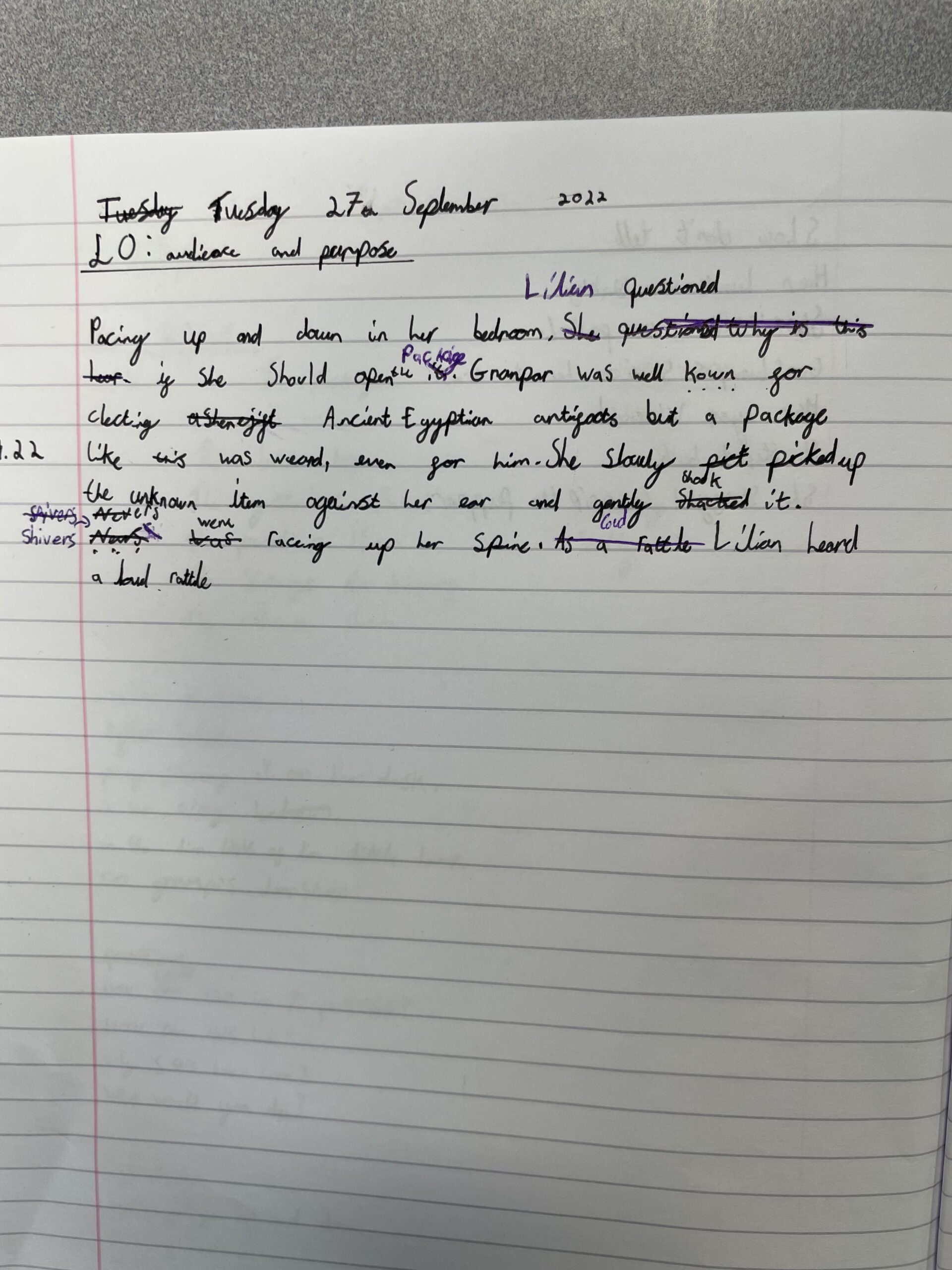
Science
Our Science this half term includes learning all about living things and their habitats. This week, with Mrs Bald, we’ve been exploring habitats and micro-habitats. A habitat is a home to a living thing. A micro-habitat is a smaller, different environment within the larger habitat that it is in. We put on our coats and went on a ‘habitat and micro-habitat hunt’ around the school grounds. We found lots of animals living under large sticks and in bushes – snails, spiders and even a bee!
Why not have a look in your garden or the local park to see what habitats and micro-habitats you can find?

PE
We’ve been working on our ball skills in our PE sessions. We have been throwing and catching and bouncing and catching. The children have all wowed us with their ball skills.
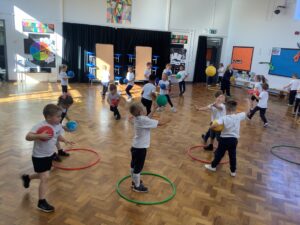
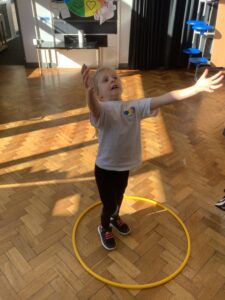
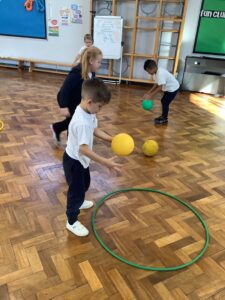
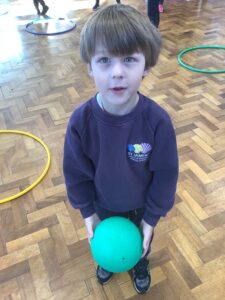
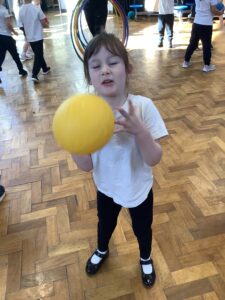
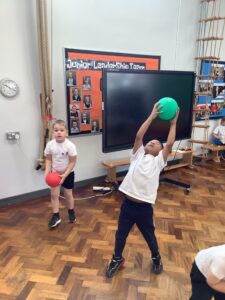

This week’s message (Friday 23 September 2022)
Thanks to all of you who managed to come along to our coffee morning this week – it was lovely to see the hall buzzing!
This week’s message has some information about an event coming up for Key Stage 1 and 2 parents and carers. The rest of the message is about the annual survey we do with children.
Watch us while we work
Coming up at school is a short open session for current KS1 and KS2 parents/carers to join us in class to watch the teaching and learning of some essential Maths and Reading skills. The session is a great way to find out how you can support your child at home.
The session is at 9am on Tuesday 04 October. You’re welcome to visit us – there’s no need to reserve a place. We invite you to spend time in just one class. (For those of you with more than one child, you might want to come again for a second session on 26 January to visit a second classroom.)
Parents and carers of children in Reception have the opportunity to attend separate Stay and Learn sessions.
Pupil survey
At around the same as the parent/carer survey is released, we ask children in KS2 to complete a quick survey, too. This helps us identify strengths and possible areas to develop.
Children rated provision in Science, Art, DT, Geography, History and Music higher than nationally – four of these were rated significantly higher and one very significantly higher.
Importantly, responses from children around safeguarding were all strong: all but one were above national figures (the other one matched the national figure). This includes one statement which had responses significantly above (‘I feel safe at this school’) and one very significantly better (‘There is no racist abuse at this school).
Similarly, responses about learning behaviour were better than national (‘I am always keen to do well in school was significantly better).
This all goes to prove that our school is a happy and healthy place to achieve and believe.
Talking of which, have a happy and healthy weekend!
Year 4: Friday 23rd September 2022
This week, our spellings focus on the ee sound. There’s lots of ways to spell the ee sound so it’ll be good practice to check we know the right ee sound to use!
breathe
complete
appear
extreme
increase
money
chimney
people
busy
quickly
Settling into Nursery
It has been a lovely week to welcome all the children to their first full day sessions. The children have continued to explore all the areas of provision inside and outside nursery. As you can see from the photographs the children have been getting to know each other and familiarising themselves with their new surroundings and grown-ups!
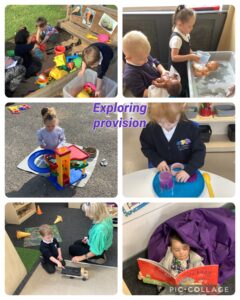
We’ll continue to support the children to settle in over the next few weeks Please feel free to ask any of the nursery team if you have any questions.
Reminders
- Please collect your child promptly at the end of their session. It can be very upsetting if you’re the last child to be collected when others have already gone home.
The Nursery team
Great learning in Reception
What fantastic readers we are! I wonder if you have heard any of our new phonemes at home that we have been working hard on this week? We have been using our magic air fingers and whiteboards to learn more about letter formation and have been trying to use these new skills in our different areas of provision.
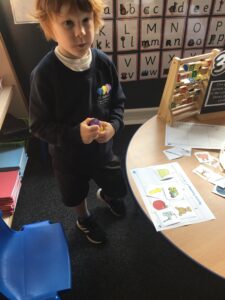
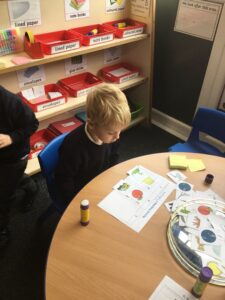
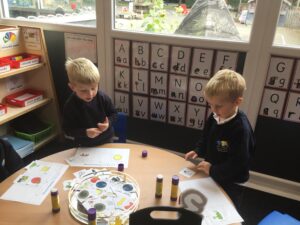
We have been thinking more about ourselves and our families and decided to create some playdough self portraits. We used mirrors to look at our faces before choosing different loose parts to create our faces.

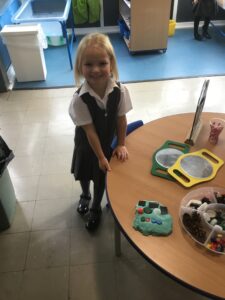
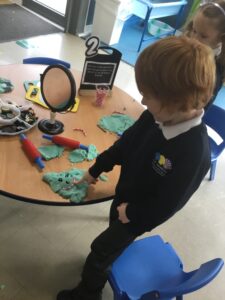
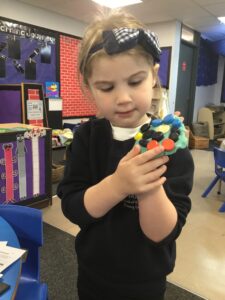
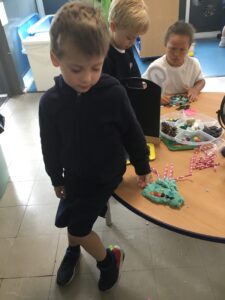
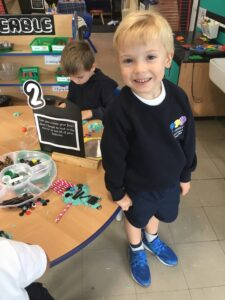
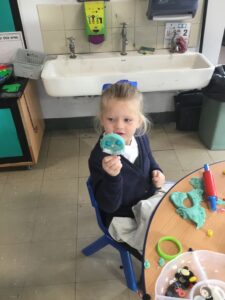
I would like to take this opportunity to introduce you to our new friend in Reception called Ted. Ted is our class bear and he will be visiting everyone very soon. Ted has a diary which will be shared with the class after a home visit. The children are very excited to be bringing Ted home with them to meet their families.
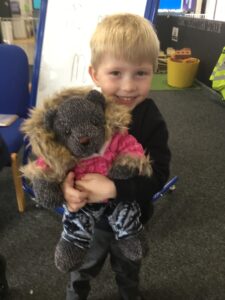
On Thursday 29 September at 6pm there will be a zoom meeting with myself and Mrs Beesley to discuss reading and e-books. Everyone should have already received the zoom link and we are looking forward to seeing you then.
We now have our own reception email address which can be used for sharing information and pictures of fun learning that has been happening at home. The email address is: stjamesreception@spherefederation.org
As always if you have any questions please don’t hesitate to get in touch.
Mrs Payne